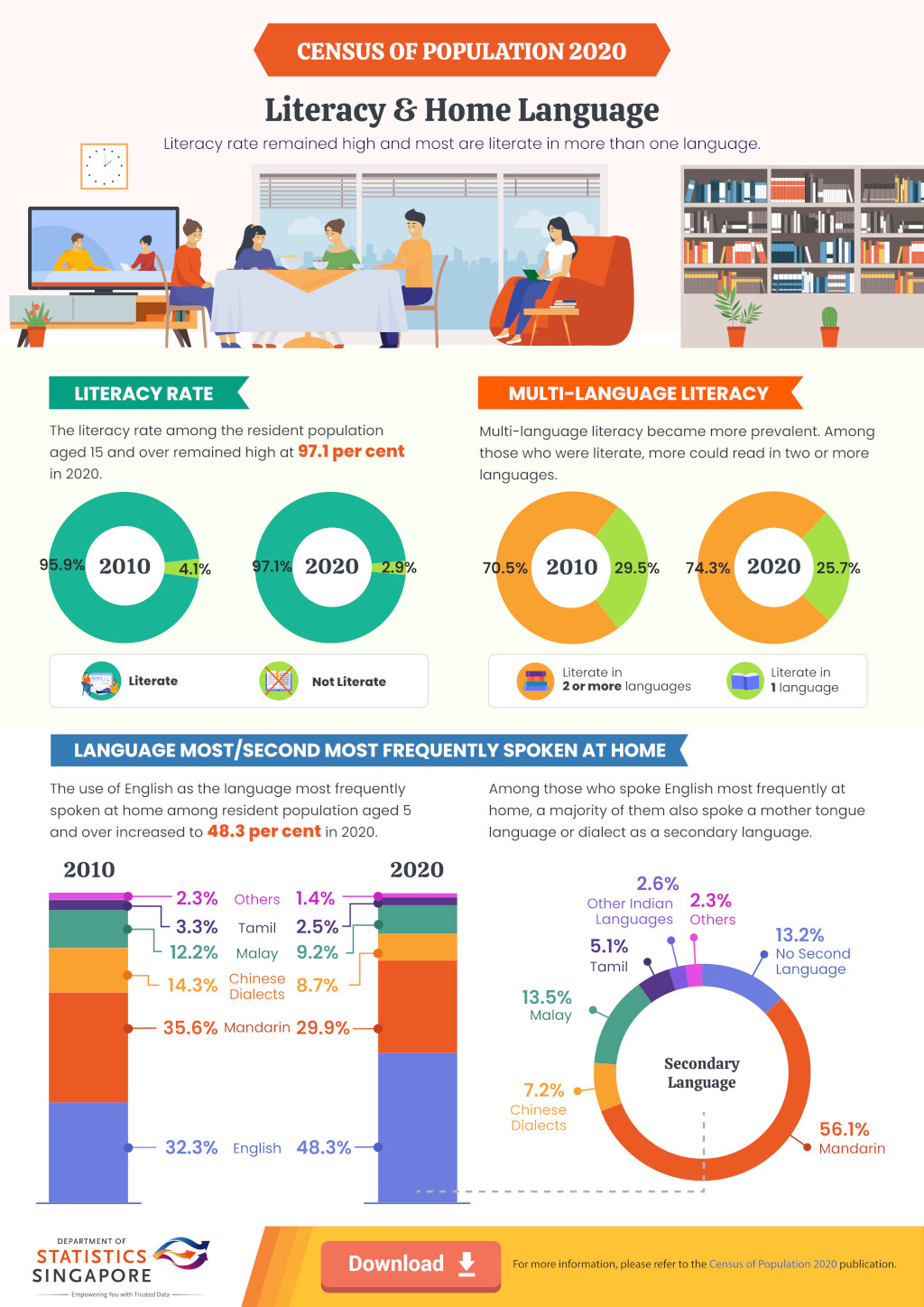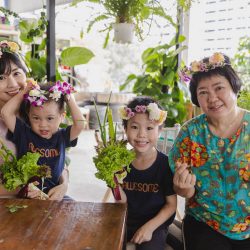SingaporeMotherhood | Parenting
May 2023
8 Fun Activities to Help Children Improve Their Mandarin Oracy at Home

According to SingStat, the use of Mandarin as the language spoken most frequently at home was 29.9 per cent in 2020, dropping from 35.6 per cent a decade prior. While it’s a good thing that more Singaporeans are literate and fluent in English, PM Lee Hsien Loong fears that we may be losing our bilingual edge. Roi Xu, the regional head of learning product at LingoAce, believes that there are several reasons for the decline in Mandarin oracy. “An increasing exposure to English pop culture via television, social media, and various video streaming platforms, for starters,” he says.
(See also: How Mastering Three Languages Will Help Secure Your Preschooler’s Future Success)

The Problem: Decline of Mandarin Oracy
At home, parents may not be conversing in Mandarin with their children enough. Firstly, working parents may not have sufficient opportunities to spend time chatting with their child. This is exacerbated if parents themselves do not have a habit of conversing in Mandarin. With fewer multigenerational families, children also don’t benefit from living with Mandarin-speaking grandparents.
(See also: The Importance of Grandparents in a Child’s Growth & Development)
Many simply don’t have the confidence to use the language. There is no secret to mastering any language — it takes practice and immersion. Without opportunities to practise, it is easy for children to avoid using it altogether. This results in a continuous vicious cycle, whereby the lack of practice contributes to further lack of confidence to use the language.
Students may also perceive learning Mandarin as a difficult — even impossible — task. While it is the second most difficult language in the world, learning Mandarin takes more than just classroom learning and textbooks. It also requires engaging in conversational Mandarin outside the classroom and making an effort to practise it in everyday life.
The Solution: Foster a Love for the Language

The key to overcoming language learning barriers lies in tailoring learning to young digital natives’ learning styles. An educational experience that is fun, immersive, interactive, and relatable to today’s children can make all the difference.
On top of classroom learning, parents can support their children in mastering the language by putting it into practice themselves. This comes through best when parents play a part in speaking Mandarin with their children at home, enabling auditory learning.
Parents should also communicate the importance of oracy — the skill of expressing oneself fluently and grammatically in speech — to their children. The benefits of Mandarin oracy include improving educational outcomes via literacy and vocabulary acquisition, supporting overall well-being and confidence, and developing a stronger sense of belonging to their cultural roots.
(See also: Will Chinese New Year Traditions End With My Generation?)
It is easiest to foster a love for the language through regular immersion. Illustrated storybooks, television programmes, and even audiobooks are just some ways to engage younger children. Older kids may find it more palatable to include Mandarin language anime and YouTube videos in their routine media consumption.
By taking the academic pressure off, it becomes easier for children to learn (to love) the language. When it is no longer a ‘chore’, learning it comes naturally. Read on for some fun activities you can initiate at home to help your kids improve their Mandarin oracy.
Fun Activities to Help Children Improve Their Mandarin Oracy at Home

1. Record a video diary
Many kids aspire to be Vloggers or YouTube stars. So why not encourage them to start a video diary? They can either chart their everyday life or record special occasions like birthdays. Documenting a family vacation during the school holidays is another excellent place to start.
2. Play word games
Spoken word games are great for helping children use descriptive language and think critically about what they’re saying. Examples include games like ‘20 Questions’, ‘Guess Who?’ and ‘I Spy with My Little Eye’. Or try a game of ‘Charades’ in Mandarin on your next family game night!
3. Read aloud to your child
One of the areas in which oracy matters is in the development of literacy skills. Younger children develop listening skills when you read aloud to them. Choose a wide range of stories, poems, rhymes, and non-fiction to grow their vocabulary, language comprehension, and eventually, their love for reading.
4. Go on a nature walk
This is another great pre-phonics activity for young children. Encourage them to listen carefully to the sounds they hear — from traffic to birdsong — and describe them. They can also describe the natural sights they see, such as trees, animals, birds, and the sky.

5. Talk about their day
It’s always good practice to have your evening meal together as a family. Now make it a point to encourage conversation in Mandarin. Each family member can take turns to share the highlights and lowlights of their day.
6. Phone a friend
Persuade your child to take a break from texting. Instead, develop their speaking skills by making an actual voice call to their friends. Or surprise their favourite aunt or doting grandmother with a video call. Building bonds while improving their Mandarin oracy? It’s a win-win!
7. Watch movies and plays
Immersion is key. Book tickets to plays, musicals, and concerts in Mandarin, or that revolve around Chinese culture. Choose family-friendly movies at the cinema or watch Chinese series and cartoons on TV. After all, how many of us learn bits of Japanese and Korean by bingeing on J- and K-dramas?
8. Sign them up for a club
Joining extracurricular clubs is a good opportunity to converse with different people outside the home or school environment. Examples include a Chinese drama course at an enrichment centre or wushu lessons (conducted in Mandarin) at community clubs.
(See also: Martial Arts for Kids − Where to Groom Mini Ninja Warriors and Karate Kids in Singapore)
We had a Primary Three student who had a habit of mixing in bits and pieces of English words and phrases while conversing in Mandarin. To help improve her Mandarin conversational skills, her teacher at LingoAce encouraged her to make video diaries in Mandarin that summed up her weekly highlights and activities.
Roi Xu, regional head of learning product, LingoAce
What started as a weekly Vlog has turned into an almost daily habit for her. And safe to say that her conversations in Mandarin are now not only fluent, but entertaining and confident as well. Her storytelling and dictation skills have also improved tremendously. She even declared that she wants to be a ‘social media queen’ when she grows up!
All content from this article, including images, cannot be reproduced without credits or written permission from SingaporeMotherhood.
Follow us on Facebook, Instagram, and Telegram for the latest article and promotion updates.





